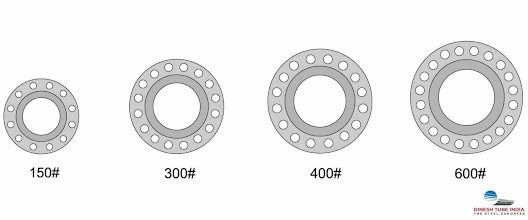Applications of Stainless Steel Forged Fittings
What is Stainless Steel Forged Fittings?
Steel is arguably one of the most widely used materials in construction and manufacturing worldwide. According to the end use of a steel component, a variety of steel grades have been developed, each with a unique chemical composition.
There is a wide range of consumer and commercial applications for carbon steel, alloy steel, and stainless steel. A wide range of products can be created using stainless steel grades. Forged stainless steel fittings can be used in fluid and gas transport, chemical and food processing, and any location or environment that requires properties that Stainless Steel proves to be worth the cost.
What are the uses of Stainless Steel Forged Fittings?
Chemicals, fuels, liquids, and other fluids are processed using them in a wide variety of industrial applications.
A variety of industries use SS forged fittings, including the oil and gas industry, power plants, food & beverage industry, pharmaceuticals, paper processing, construction, semiconductor manufacturing, etc.
Additionally, these pipe fittings can be used to transport hazardous materials such as waste and chemicals. Additionally, they protect sensitive equipment from high pressure.
To protect against corrosion and harsh weather conditions, SS Forged Fittings are used in wellhead equipment, Christmas tree equipment, oil mining, high pressure work, fracking equipment, onshore offshore drilling, and rig ventures.
It is also used in household facilities and in the construction of roads and highways. In addition to smartphones, laptops, computers, TV sets, etc., stainless steel forged fittings are used to manufacture semiconductors in microchips.
The list of applications just keeps going. All of these fields of application are considered by the manufacturers of cast steel fittings.
Features of Stainless Steel Forged Fittings
The most common materials used in forged fittings are carbon steel and stainless steel.
Because of their salient characteristics such as corrosion resistant finishes, simple installation, robust construction, smooth edges, and so on, forged steel fittings manufacturers enjoy a large amount of business.
Forged fittings were made of stainless steel or nickel alloy. Heavy-duty automotive fittings are thicker and larger.
Stainless Steel Forged fittings provide leak-free connections and are ideal for transporting toxic or corrosive materials.
Benefits of Stainless Steel Forged Fittings
Suppliers of stainless steel forged fittings ensure that the product’s purpose is met and that the consumer receives all of the benefits.
SS Forged Fittings are generally more durable than their equivalents.
Castings cannot handle as much pressure as it can.
Due to their compact grain arrangement, forged steels are mechanically solid.
Forging prevents pores, shrinkage, cold pour problems, and cavities.
Can stainless steel be forged?
Steels such as stainless steel are excellent for forging. Forging stainless steel is very effective because it reacts well with the forging process. Forging enhances its strength and corrosion resistance, among other qualities. As a result of forging, grain flows continuously through the part.
What are the Benefits for High Pressure Forged Fittings?
In addition to being made from top-quality raw materials, high-pressure forged fittings can be used in a variety of applications. Forged fittings have a unique durability and consistency, as well as high pressure, and no imperfections.
For more information visit
https://thesteelexporter.com/applications-of-stainless-steel-forged-fittings/
#steel #metal #thesteelexporter #pipe #tubes #fittings #stainlesssteel #flanges #application




Comments
Post a Comment